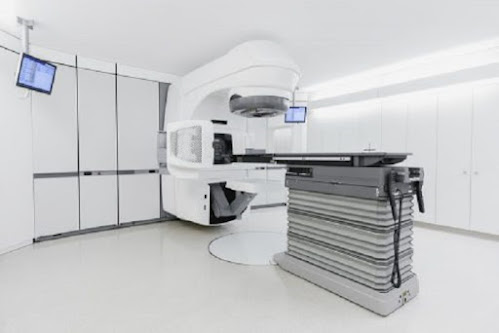The rising incidence of cancer, technological advancements, and advantages offered by IORT over conventional radiotherapy are the major factors driving the growth of the global intraoperative radiation therapy market. Additionally, growing clinical trials exploring the use of IORT for various cancer applications is expected to offer lucrative growth opportunities to market players.
[159 Pages Report] The global intraoperative radiation therapy market is projected to reach USD 66 million by 2025 from USD 48 million in 2020, at a CAGR of 6.4% during the forecast period.
This study involved the extensive use of both primary and secondary sources. The research process involved the study of various factors affecting the industry to identify the segmentation types, industry trends, key players, competitive landscape, fundamental market dynamics, and key player strategies.
Market Dynamics
1. Growing global prevalence of cancer
2. Improving reimbursement scenario
3. Procedural advantages over EBRT
4. Technological advancements
COVID-19 Impact on the global Intraoperative radiation therapy market
The intraoperative radiation therapy market was significantly impacted by the COVID-19 pandemic. Various screening, diagnostic, and surgical procedures were restricted or postponed at hospitals and cancer treatment centers, which resulted in disruptions in the cancer diagnosis as well as treatment market. The pandemic also impacted the availability of healthcare resources. Major regulatory authorities across the globe, such as the CDC, WHO, MHRA, TGA, and EMA, have identified cancer patients at a greater risk of contracting coronavirus disease than healthy adults. In order to reduce the burden on the patient and staff while reducing the risk of exposure, few alternate dose-fractionation regimens were suggested by regulatory authorities.
Download PDF Brochure @ https://www.marketsandmarkets.com/pdfdownloadNew.asp?id=245000083
The IORT procedure is associated with various advantages such as targeted radiation, limited treatment time, high precision and radiation control, and minimal radiation exposure of normal tissue. This is especially true for breast cancer, as this mode offers women a choice of breast-sparing treatment (lumpectomy). The increasing prevalence of breast cancer is, therefore, a key factor driving the market growth. The growing prevalence of cancer will increase the adoption of IORT procedures.
The geographical regions mapped in the report are:1. North America2. Europe3. Asia-Pacific4. Latin America5. Middle East & Africa
North America, comprising the US and Canada, accounted major share of the intraoperative radiation therapy market in 2019. The major factors driving market growth in this region are the easy availability and high adoption of IORT for cancer treatment, the rising incidence of cancer, and significant per capita annual healthcare expenditure in the US and Canada. Furthermore, associations such as the American Society for Radiation Oncology (ASTRO) have advocated the use of low-energy IORT, which has contributed to its increased adoption in North America..
Request for sample pages @ https://www.marketsandmarkets.com/requestsampleNew.asp?id=245000083

 Log in with Facebook
Log in with Facebook 






